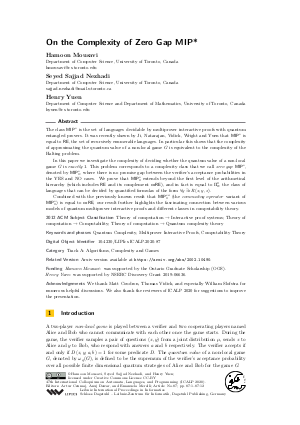LIPIcs.ICALP.2020.87.pdf
- Filesize: 0.52 MB
- 12 pages

 Creative Commons Attribution 3.0 Unported license
Creative Commons Attribution 3.0 Unported license












Feedback for Dagstuhl Publishing